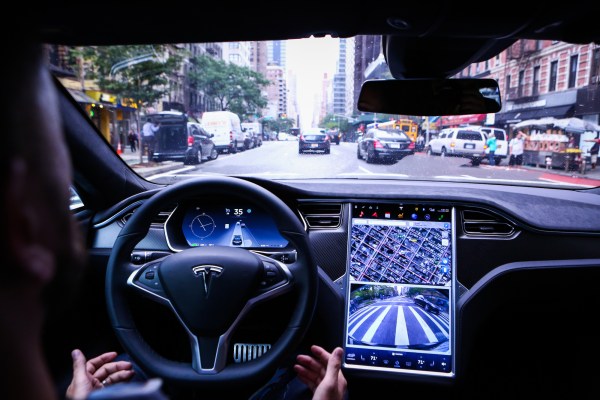Once again, the National Highway Traffic Safety Administration (NHTSA) is requesting more information from Tesla regarding the safety of Autopilot.
In a special order dated July 26, the regulator shared concerns about a change to Tesla’s advanced driver assistance system that allows drivers to use the system for extended periods of time without prompting the driver to place their hands on the steering wheel.
NHTSA ordered Tesla to answer questions and produce documents, according to the letter released Tuesday.
The special order is part of NHTSA’s ongoing investigations into Autopilot after identifying more than a dozen crashes in which Tesla vehicles hit parked emergency vehicles. The agency is also actively looking into whether Teslas can make sure drivers are paying attention when using Autopilot.
This isn’t the first time NHTSA has requested information about Tesla’s driver monitoring systems (DMS), which are meant to ensure drivers are paying attention to the road while automated driving systems are engaged. In August 2022, the agency asked Tesla to answer questions about its cabin camera as part of an ongoing probe into 830,000 Teslas that include Autopilot. Tesla says the camera is built with a DMS that can determine if a driver isn’t paying attention and send them noise alerts.
Tesla previously relied on a system that could detect when a driver’s hands were on the steering wheel, but introduced the camera-based DMS in May 2021.
NHTSA asked for more information about the DMS in July, as well as information on how Tesla generates its quarterly safety reports.
“The resulting relaxation of controls designed to ensure that the driver remained engaged in the dynamic driving task could lead to greater driver inattention and failure of the driver to properly supervise Autopilot,” reads NHTSA’s July letter to Tesla.
Tesla CEO Elon Musk has shared plans on X — the social media platform formerly known as Twitter that Musk bought in 2022 — to gradually reduce alerts aimed at ensuring drivers using Tesla’s “Full Self-Driving” (FSD) system keep their hands on the wheel.
Tesla has been ordered to provide information on when the software update was introduced, how many vehicles were affected, Tesla’s reason for installing it and any plans to enable the software in the next year. NHTSA gave Tesla a due date of August 25, and late responses can cost $26,315 per day. NHTSA did not respond in time to TechCrunch to confirm that Tesla met its deadline.
The order from NHTSA comes as Tesla faces back-to-back lawsuits this fall. The first, scheduled for September in a California state court, contains allegations that Autopilot caused a vehicle to suddenly veer off a highway at 65 miles per hour, hit a tree and burst into flames, killing the owner of the vehicle.
The second is set for October, and concerns the death of a Miami driver whose Model 3 drove under the trailer of a truck that had pulled onto the road, slicing off the top of the car’s roof and killing the driver. The lawsuit alleges that Autopilot failed to brake, steer or act in any way to avoid the crash.
